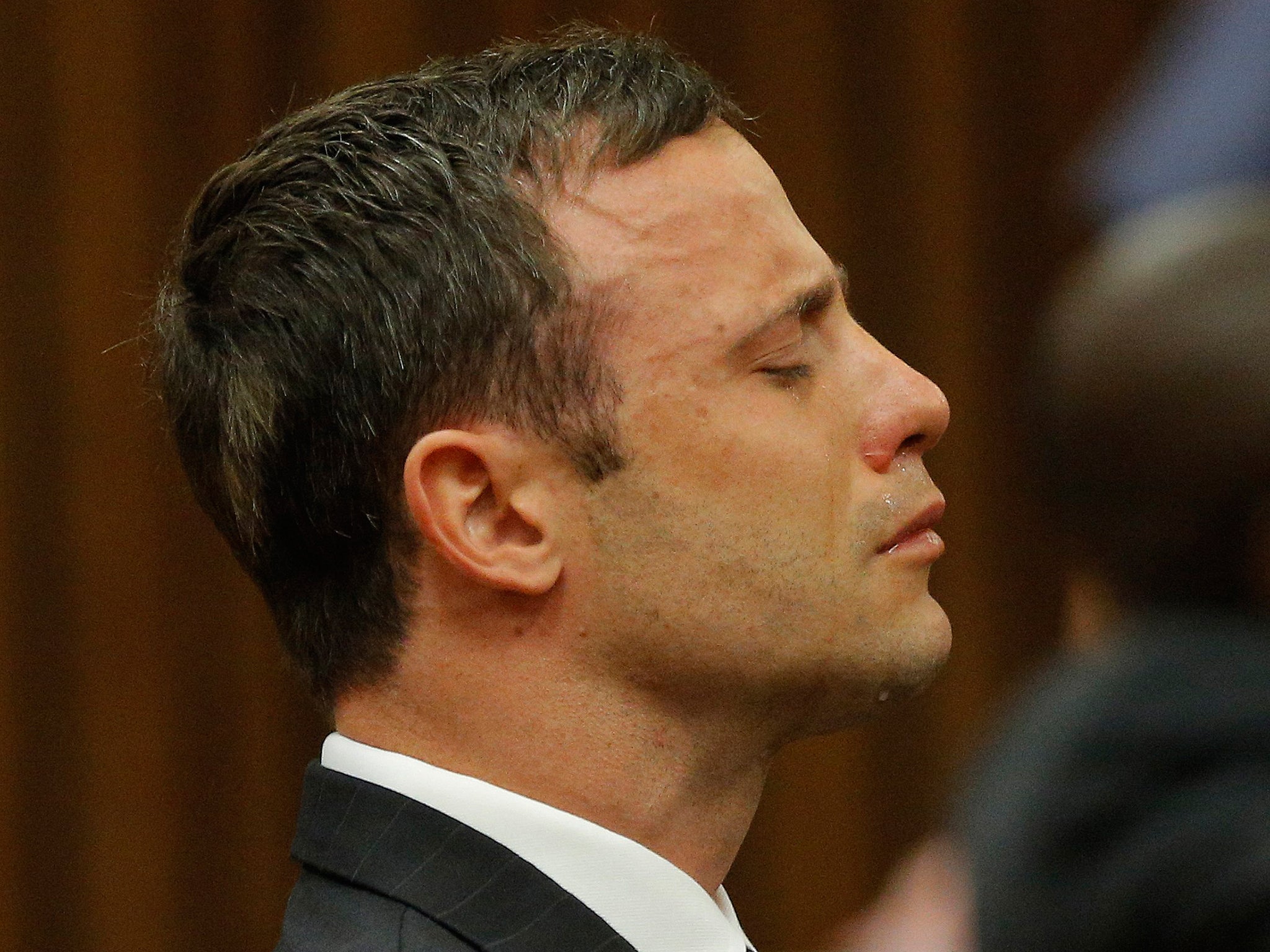Culpable homicide: What is it - and what is maximum sentence Oscar Pistorius faces?
Athlete was cleared of murder but could still be imprisoned for lesser charge

Your support helps us to tell the story
From reproductive rights to climate change to Big Tech, The Independent is on the ground when the story is developing. Whether it's investigating the financials of Elon Musk's pro-Trump PAC or producing our latest documentary, 'The A Word', which shines a light on the American women fighting for reproductive rights, we know how important it is to parse out the facts from the messaging.
At such a critical moment in US history, we need reporters on the ground. Your donation allows us to keep sending journalists to speak to both sides of the story.
The Independent is trusted by Americans across the entire political spectrum. And unlike many other quality news outlets, we choose not to lock Americans out of our reporting and analysis with paywalls. We believe quality journalism should be available to everyone, paid for by those who can afford it.
Your support makes all the difference.Oscar Pistorius has been found guilty of culpable homicide, the South African equivalent of manslaughter in English law.
Despite being cleared of murdering his girlfriend, Reeva Steenkamp, this means the athlete could still be imprisoned for shooting her dead at his home.
Defined as “unlawful or negligent killing”, the offence of culpable homicide does not require intent or premeditation.
Judge Thokozile Masipa ruled that prosecutors had failed to prove their case that the 27-year-old intended to kill his girlfriend after an argument.
“The state has not proved beyond reasonable doubt that the accused is guilty of premeditated murder,” she said. “There are just not enough facts to support such a finding.”

Pistorius’ lawyers argued that the former Paralympic gold medallist acted in self-defence, believing an intruder was in the bathroom, and felt vulnerable because of his disability.
But Ms Masipa said he had not acted “reasonably”, adding: “I am of the view that the accused acted too hastily and used excessive force. It is clear that his conduct was negligent.”
She argued that Pistorius had chosen to arm himself with a gun and “clearly wanted to use the firearm” when there were other ways of dealing with the threat.
"All the accused had to do was pick up the phone and ring security, or run to the balcony and call for help,” she added.
Join our commenting forum
Join thought-provoking conversations, follow other Independent readers and see their replies
Comments